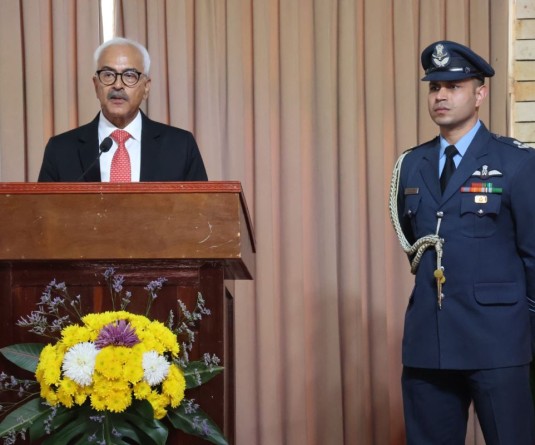
Morung Express News
Dimapur | November 26
The Supreme Court, on November 23, granted the Chief Secretaries of defaulting States and Union Territories, including Nagaland, the “last opportunity” to clear the salary and arrears as well as revised pension and arrears of lower court judges in accordance with the recommendations of the Second National Judicial Pay Commission (SNJPC).
Earlier on May 19, 2023, the apex court had issued direction for submission of compliance affidavits of all States and UTs for the payment of the arrears of pay to all judicial officers be filed by July 30, 2023 stating that the arrears of pay have been positively credited into the accounts of the concerned officers.
Further, revised rates of pension approved by the Court shall be payable from July 1, 2023 and the arrears of pension, additional pension, gratuity and other retiral benefits shall be paid in instalments – 25% by 31 August 2023, 25% by 31 October 2023 and the remaining 50% by 31 December 2023, it then directed.
However, when the matter was heard on November 23, a three-judge bench headed by Chief Justice of India DY Chandrachud noted that despite authoritative directions on May 19, most States and UTs have not complied with the directions of this Court.
“Where arrears of pay have been paid, there has been no compliance in respect of pension. We, prima facie, are of the view that there has been a default and breach in compliance with the order of this Court warranting the initiation of contempt action against the State governments and Union Territories in default,” stated the order issued by the Bench, also comprising Justices J B Pardiwala and Manoj Misra.
However, granting one last opportunity, the Bench directed that compliance with the directions contained in the judgment dated May 19, 2023, shall be positively effected, and compliance affidavits filed on or before December 6.
Otherwise, the Chief Secretaries of all the defaulting States or UTs shall personally present before the Court on the next date of listing on December 8, it added.
The Bench further clarified that the direction for compliance before December 6 entails “the actual crediting of the amounts payable to each judicial officer and, in the case of family pension to the surviving spouses, into their accounts.”
As per the compliance status of the May 19 order complied and submitted to the court by the amicus curiae in the case, while almost all States and UTs have complied with the order dealing with the revised and arrears of pay for the judicial officers, most were yet to comply with the order on the revised rates of pension and arrears of pension approved by the Court.
The status of Nagaland showed that while pay revision has been effected, including payment of arrears and revision of pension, the State was yet to respond regarding arrears of pension.
As per the status report, among all States and UTs, only Andhra Pradesh, Kerala, Tripura West Bengal, Delhi, and Puducherry are shown to have partially complied with all four directions the apex court stipulated on May 19.
The SNJC, headed by former Judge of the Supreme Court Justice P Venkatarama Reddi, was constituted to evaluate the various principles that govern the pay structure of the judicial officers belonging to lower courts across the country. The report in 4 volumes covering the subject of Pay, Pension, and Allowances, was submitted to the Registry of the Supreme Court on 29.01.2020.





